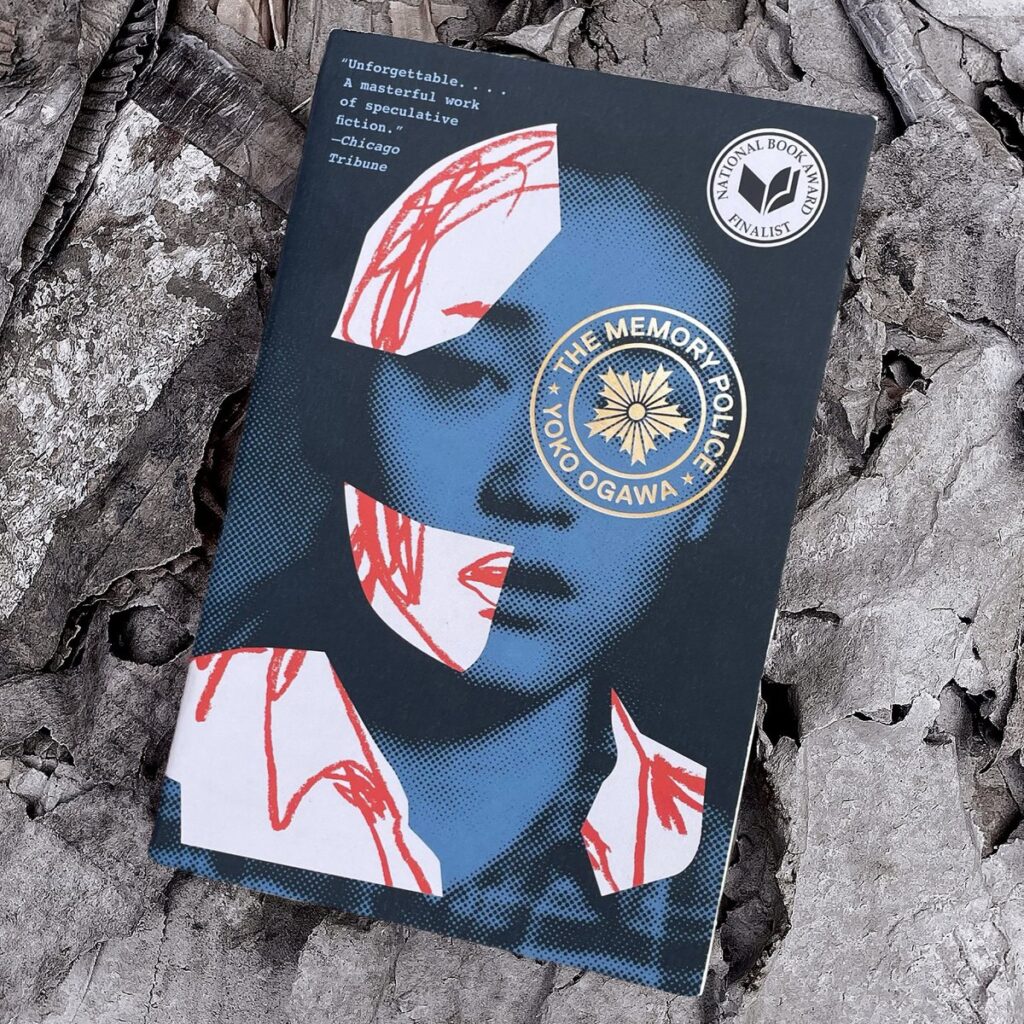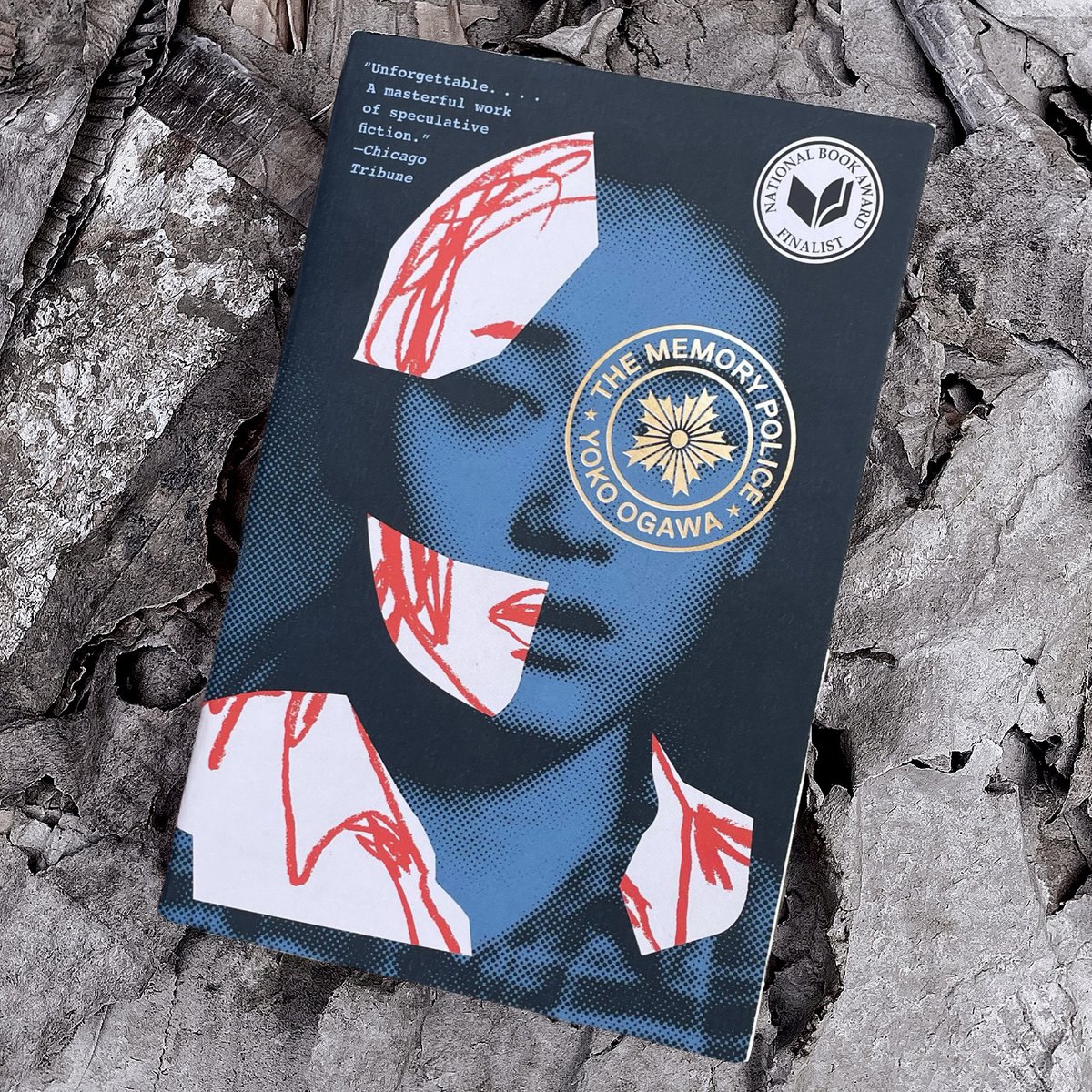
The memory police, a novel by Yoko Ogawa, very recently translated from Japanese by Stephen Snyder to English, weaves the story of an island engulfed by the epidemic of forgetting. This process of forgetting is furthered by the memory police that forcibly disappears memories of the people living on an island.
The common-sense notion runs that with the disappearance of things, in material terms, their memories also start fading, as the adage goes, far from sight, far from mind. However, if we are to inverse this, if the memory of the thing starts fading first, would it also imply the disappearance of the thing in material terms, whose memory just faded. Perhaps, the novel draws attention to this facet, that it brought upon through a mutually reinforcing cycle of forced remembering and forgetting. If we do not remember what a thing is for its utility, its appearance, its value, and other properties that define it, does that very thing continue to exist as we remembered it at all? To go a step further, would this not imply the fading up of the very idea that made that thing as we remembered it? As an example, if the memory of fragrances disappears, would it also imply the disappearance of the idea of perfume or fragrance for that matter? Next, would it also trigger a forgetting of the feeling of knowing the thing, the very feeling that the use or the knowledge of that thing left us with?
In the novel however, we are told, that the people just wake up one morning to the disappearance and while there is an inexplicable realisation that something has been lost, there is no memory of the loss, the loss does not hurt, neither does it breed any sadness and soon things go back to normal as if nothing happened. No one is left with the memory of that which disappeared.
While this kind of writing might be classified as dystopian fiction, I reluctantly imagine this as a near possibility, after what transpired in India, in the last few weeks. The Memory police’s first duty was to enforce disappearances of everything and anything (ironically, they remembered this duty well). This idea of memory police seems to come dangerously close to how the governments function, save for the fact, that here the object of disappearance becomes a portion of our history. I say this more so after hearing about how the National Council of Educational Research and Training (NCERT), a government body responsible for designing curricula for schools, has revised its books, including the 12th class History book by removing the chapters on the Mughal empire. The change will apply to all the schools that follow NCERT across the country. From Class 12, chapters related to ‘Kings and Chronicles; the Mughal Courts (C. 16th and 17th centuries)’ have been removed from the History book ‘Themes of Indian History’- Part 2, in addition to other modifications.

While it is understandable, that this move is being read in line with the pushing of the Hindutva project, which perceives Mughal history as one of a foreign invasion by Muslim rules, and co-opts the politics of naming-renaming, writing-erasing, however, it is not only that. Such moves leave us with a set of questions that point to the way religion works as a tool at the service of memory, as it pushes a forgetting of the pressing disparities around us, be it socio-economic or political, wherein the people left to die at the behest of inaction on part of the state is easily forgotten by the people. This, while enforcing the remembrance of a “foreign other” to an indigenous memory, that by the virtue of being the “other”, their existence should be either actively erased or passively rendered forgotten, if not co-opted. For this, the enterprise of history-writing becomes a central warring stage, on which this edifice of memory through the tool of religion is raised and rehearsed. Herein, we also must read such moves in consonance with the difficult situations that the country is faced with, as violence and ransacking and arson in the name of religion, recently engulfed different parts of the country, particularly areas in West Bengal, Bihar, Jharkhand, Gujarat and Maharashtra.
It is baffling to note how the political economy of religion and the clarion call in the name of religion, which is central to an individual or a group’s self-identification, enmeshed with the question of transcendental promises, overwhelms people. And anaesthetizes them to the systematic killings as a result of poverty, disease, negligence, gender-based violence, and other kinds of socio-economic atrocities, which all stem from inaction on the part of the state on an everyday basis. The clarion call is so strong that we forget what meaning we derived for our lives through our existence as a part of a larger social order in this very world. But the force of religion and the political economy around religion generates significant collective amnesia, paving the way for organised inaction, if one may call it so.
The absence of principled politics in India for a long time now is one of the major reasons that make such inaction possible, which regurgitates the very memory of the partition that birthed the Indian nation in the first place. That no amount of common suffering can overcome the religious divides, crucial for electoral engineering (of which outsourcing political campaigns to political marketing marks another low in the evolutionary trajectory of democracy) also raises questions not only for the ethics of democracy but also for the treatment of history at the altar of memory-politics, particularly in a country like India. Here, merely pinpointing the limits of secularism in a liberal polity is of little help.
While there have been historians and political thinkers alike who keep on hammering the fabric of tolerance on the social order of India, in the remote past, it is also a question for them, that how we then arrive at a stage where the memory of that remote past, once enveloped intolerance is now under such rapacious erasure, sponsored by a forgetting of sorts. Is this a new phenomenon, if yes why, if no, then is that how gullible our past is to the question of memory-dispute, surfing on the claims of identity politics which have numbed a nation to violence and the logic of a catastrophic partition?
In 2016, a book called In Praise of Forgetting by David Rieff argued in favour of a form of forgetting as the preferred moving force of history, instead of remembrance. Rieff contends that these collective remembrances are self-serving, often fraudulent, and frequently dangerous. Sometimes, he thinks, we would be better off simply forgetting the grudge-filled chronicles and getting on with living our lives. He admires the suggestion of a Northern Irish writer that the next memorial to Irish history should be “raising a monument to Amnesia and forgetting where we put it.” While suggestions of that kind may make sense momentarily, given how politics has been unfolding in front of us, it is evident that forgetting comes at the cost of a series of erasures of someone’s memory, someone’s history, someone’s marginalisation, someone’s fading into oblivion, someone’s existence. That someone however is not an individuated entity but those groups for whom self-identification is pivoted on remembrance. That we had accepted the state as the legitimate bearer of monopoly over violence and force, we now also seem to accept it as the legitimate bearer of monopoly over memories. Perhaps, the memory police function in novel ways and this is not the first time that we chose to forget.
***
Sana Shah is a PhD student of History at the University of Oxford.
